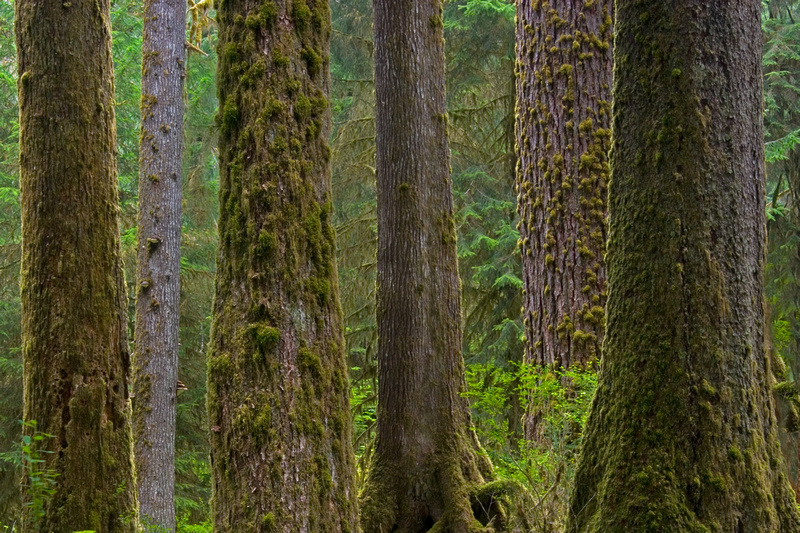How to: Forest photography
Forest photography offers both challenges and opportunities throughout the seasons. Below are some tips for getting the best images the next time you are wandering about the forest. Hover over any image for additional information on subject and location.
| Open shade or overcast light is great for getting balanced images. Avoid harsh midday light that is mottled and distracting. | |
|
Season: Summer Lighting: overcast Focal length: 85 mm (telephoto) Aperture: f22 Exposure: 2 seconds |
|
|
Season: Autumn Lighting: overcast Focal length: 28 mm (wide angle) Aperture: f4 Exposure: 1/60 seconds |
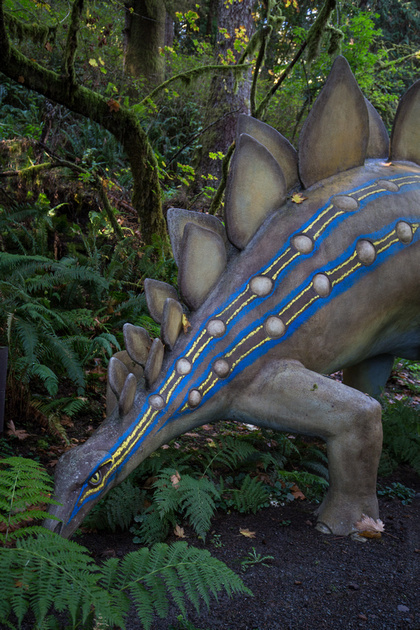 Stegosaurus, Prehistoric gardens, Oregon Stegosaurus, Prehistoric gardens, Oregon
|
|
Early morning or late afternoon light can create bands of light in the trees, making for dramatic lighting. |
|
|
Season: Summer Lighting: early morning light with fog Focal length: 16 mm (wide angle) Aperture: f11 Exposure: 1 second |
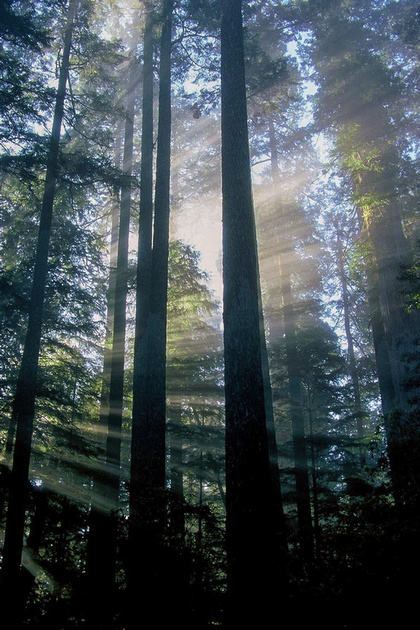 Redwoods at sunrise, Redwood National Park Redwoods at sunrise, Redwood National Park
|
|
Dawn or dusk can also create opportunities for silhouetted shots. |
|
|
Season: Winter Lighting: Pre-sunrise Focal length: 300 mm (telephoto) Aperture: f16 Exposure: 1/7 seconds |
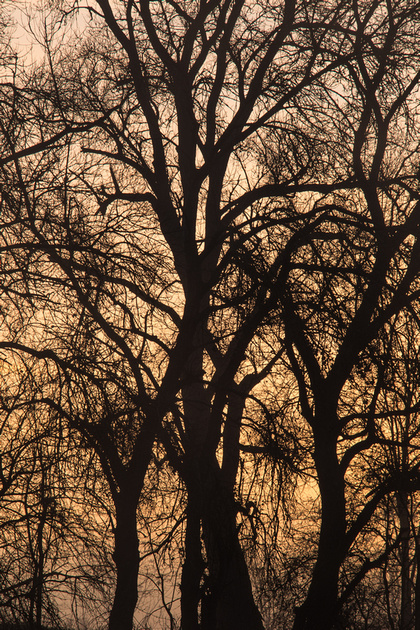 Winter trees at sunrise, Ancil Hoffman Park, California Winter trees at sunrise, Ancil Hoffman Park, California
|
|
Fog or low lying clouds are a dream come true in the forest. These add drama and mystery to what might be an otherwise mediocre scene. |
|
| Season: Autumn
Lighting: Fog Focal length: 135 mm (telephoto) Aperture: f16 Exposure: 1/7 seconds |
|
|
Season: Spring Lighting: Overcast with Low lying clouds Focal length: 40 mm (wide angle) Aperture: f29 Exposure: 1/2 seconds |
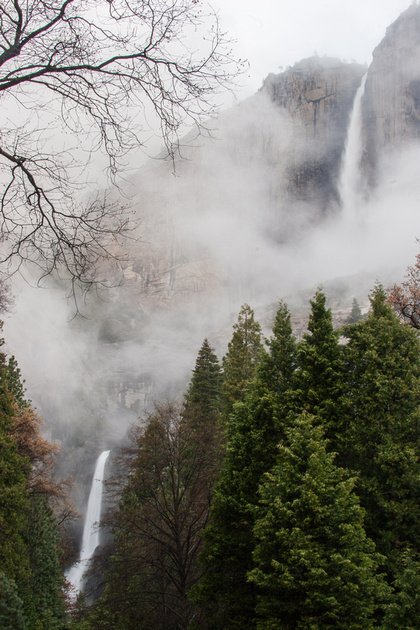 Upper and Lower Yosemite Falls, Yosemite National Park Upper and Lower Yosemite Falls, Yosemite National Park
|
|
Fill flash will help add attention to foreground objects, especially if the ambient light is lower. |
|
| Season: Autumn
Lighting: Overcast Focal length: 40 mm (wide angle) Aperture: f16 Exposure: 1 second |
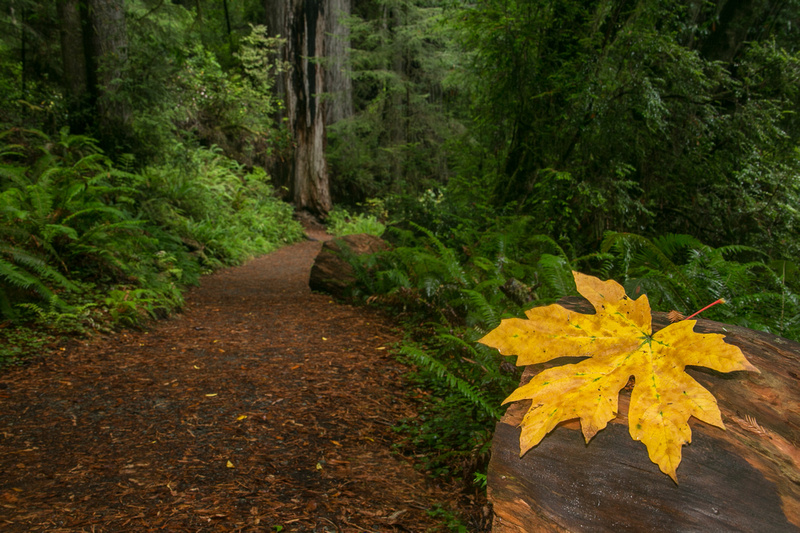 Autumn leaf on trail, Prairie Creek Redwoods State park Autumn leaf on trail, Prairie Creek Redwoods State park
|
|
Autumn is great time to mix it up with some color |
|
| Season: Autumn
Lighting: Overcast Focal length: 180 mm (telephoto) Aperture: f3.5 Exposure: 1/180 second |
 Autumn leaves, Union Creek, Oregon Autumn leaves, Union Creek, Oregon 
|
| Season: Autumn
Lighting: Overcast Focal length: 180 mm (telephoto) Aperture: f3.5 Exposure: 1/60 second |
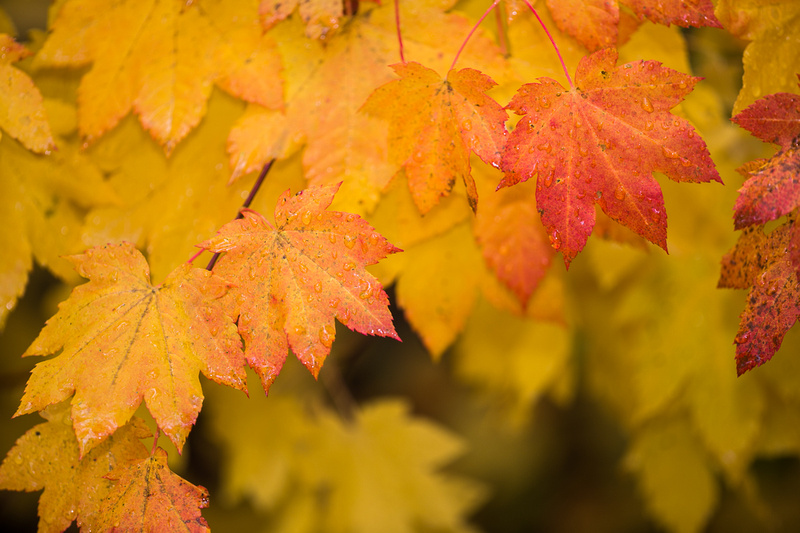 Autumn leaves, Union Creek, Oregon Autumn leaves, Union Creek, Oregon 
|
| Season: Autumn
Lighting: Overcast Focal length: 60 mm (normal-telephoto) Aperture: f11 Exposure: 1 second |
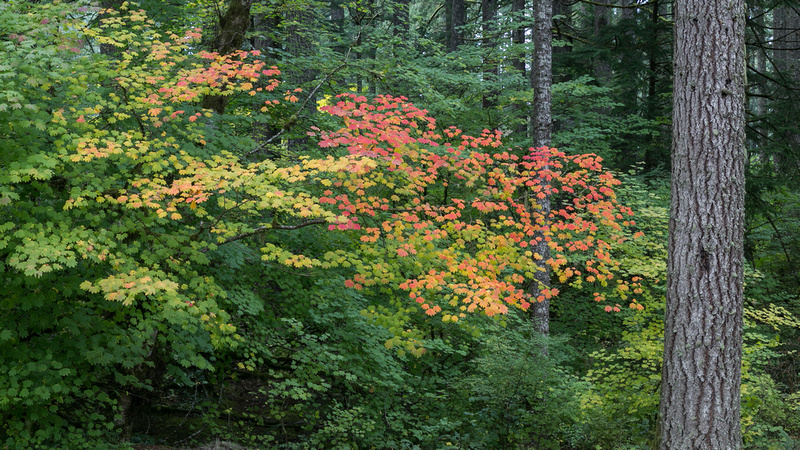 Beginning of Autumn leaves, Silver Falls State Park (multiple images stitched together to create panoramic) Beginning of Autumn leaves, Silver Falls State Park (multiple images stitched together to create panoramic)
|
|
Winter brings different opportunities for cooler tones and monochromatic type images. |
|
| Season: Spring
Lighting: Overcast/fog Focal length: 50 mm (normal) Aperture: f22 Exposure: 1/4 second |
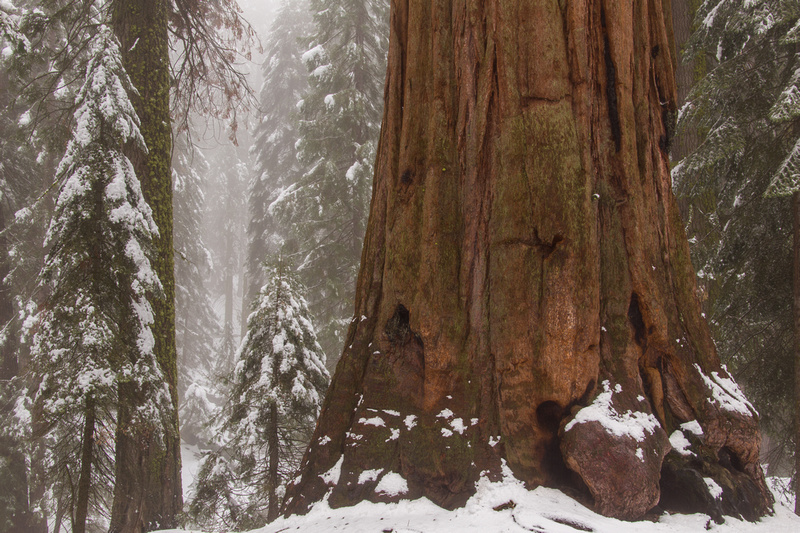 Sequoias in snow, Sequoia National Park Sequoias in snow, Sequoia National Park
|
| Season: Spring
Lighting: Mostly cloudy Focal length: 90 mm (telephoto) Aperture: f32 Exposure: 1/7 second |
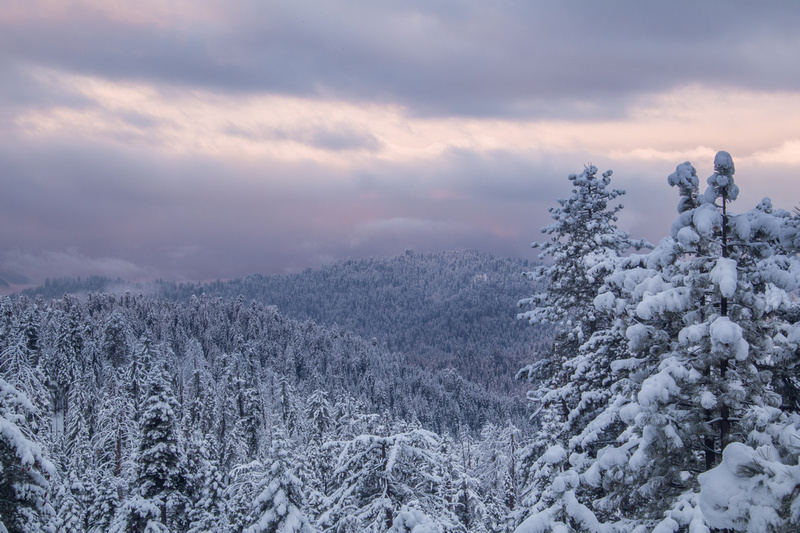 Forest after a clearing storm, Sequoia National Park Forest after a clearing storm, Sequoia National Park
|
| Season: Winter
Lighting: Overcast Focal length: 35 mm (wide angle) Aperture: f22 Exposure: 1/7 second |
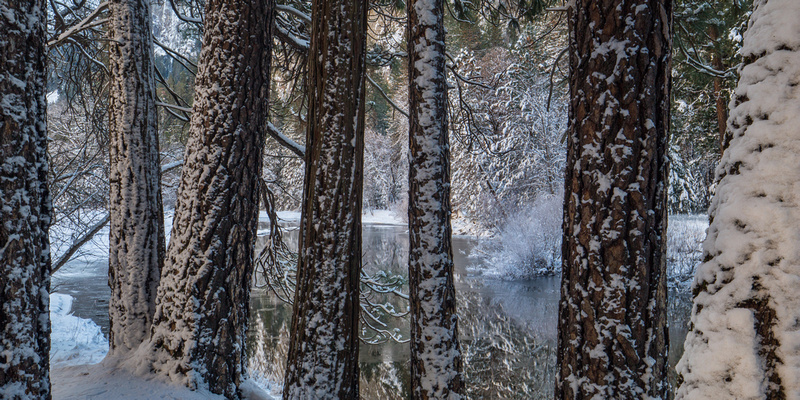 Snow covered trees along Merced River, Yosemite National Park Snow covered trees along Merced River, Yosemite National Park
|
|
Spring will also provide a splash of color if some of the plants and trees have blooms. |
|
| Season: Spring
Lighting: Open shade Focal length: 180 mm (telephoto) Aperture: f4 Exposure: 1/50 second |
 Crimson Columbine, Lassen National Park Crimson Columbine, Lassen National Park
|
| Season: Spring
Lighting: Open shade Focal length: 180 mm (telephoto) Aperture: f4.5 Exposure: 1/180 second |
 Spring flowers, Washington Oaks gardens, Florida Spring flowers, Washington Oaks gardens, Florida
|
|
Wide angle lenses [16 -35 mm range] are good options for capturing the forest scene with a focused foreground element. |
|
| Season: Autumn
Lighting: Overcast/light rain Focal length: 15 mm (wide angle, fish eye) Aperture: f4 Exposure: 8 seconds |
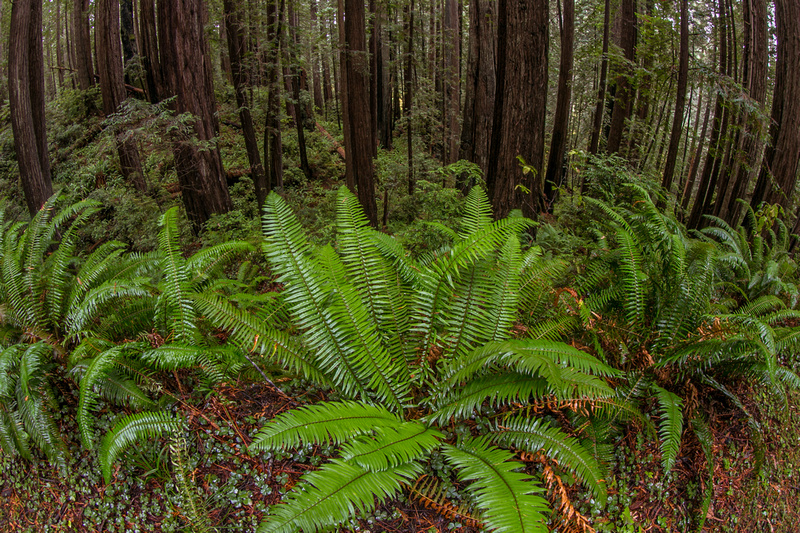 Extremely wide angle view of redwood forest, Prairie Creek Redwoods State park Extremely wide angle view of redwood forest, Prairie Creek Redwoods State park
|
| Season: Summer
Lighting: Late afternoon sun Focal length: 40 mm (wide-normal) Aperture: f18 Exposure: 1/8 second |
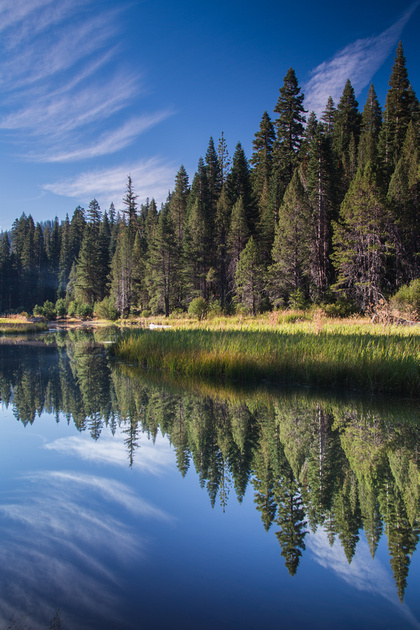 Forest reflection in the Truckee River, North Lake Tahoe Forest reflection in the Truckee River, North Lake Tahoe
|
|
Telephoto lenses [70+ mm] are good for isolating and compressing subjects. I use these to weed out distractions. |
|
| Season: Autumn
Lighting: Late afternoon sun Focal length: 400 mm (telephoto) Aperture: f5.6 Exposure: 1/160 second |
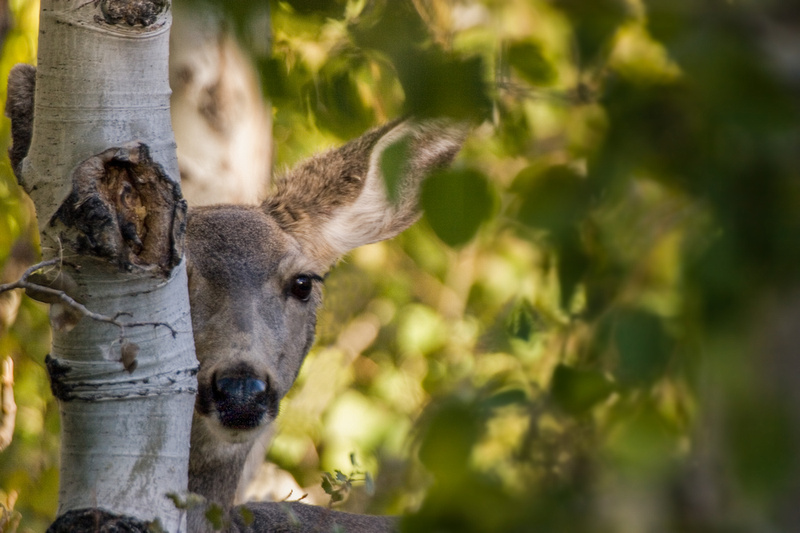 Black tail deer in aspen forest, June Lake Black tail deer in aspen forest, June Lake
|
| Season: Summer
Lighting: Afternoon sun Focal length: 330 mm (telephoto) Aperture: f5.6 Exposure: 1/90 second |
 Chipmunk scavenging for food, Yosemite National Park Chipmunk scavenging for food, Yosemite National Park
|
| Season: Spring
Lighting: Open shade Focal length: 300 mm (telephoto) Aperture: f5.6 Exposure: 1/80 second |
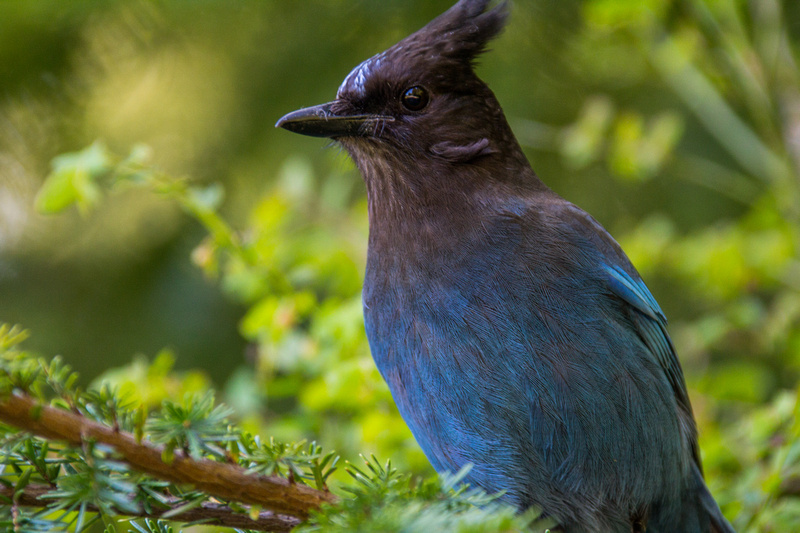 Stellar Jay, Redwoods National Park Stellar Jay, Redwoods National Park
|
|
Macro lenses help capture those forest details that can be easily overlooked. |
|
| Season: Summer
Lighting: Open shade Focal length: 180 mm (telephoto) Aperture: f3.5 Exposure: 1/180 second |
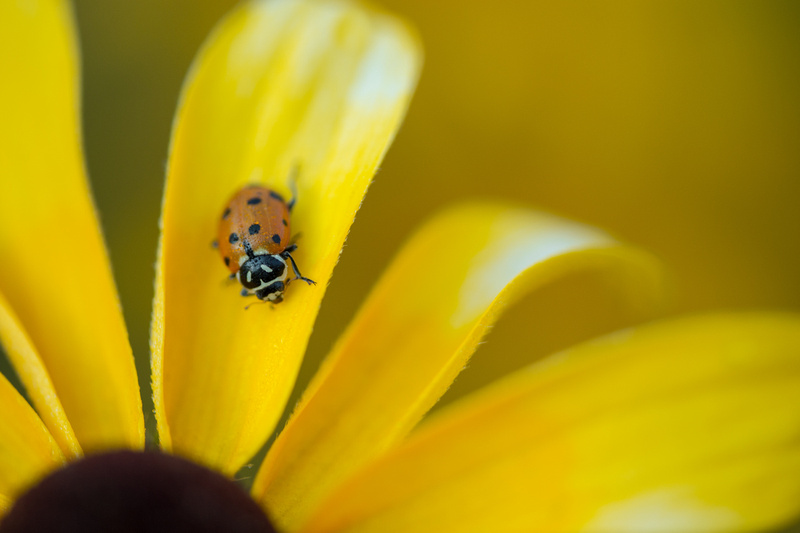 Ladybug on cone flower, Yosemite National Park Ladybug on cone flower, Yosemite National Park
|
| Season: Autumn
Lighting: Late afternoon sun Focal length: 300 mm (telephoto) Aperture: f5.6 Exposure: 1/160 second |
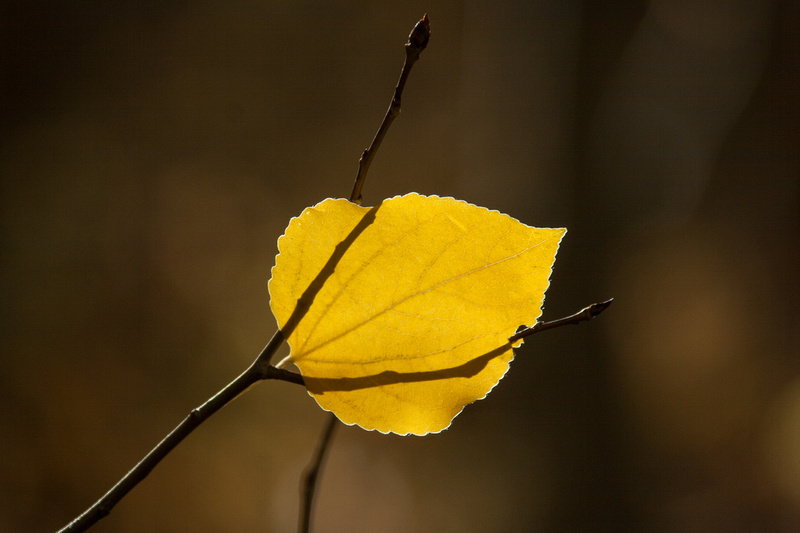 Aspen leaf caught in a branch, June Lake Aspen leaf caught in a branch, June Lake
|
| Season: Summer
Lighting: Open shade Focal length: 180 mm (telephoto) Aperture: f8 Exposure: 1/5 second |
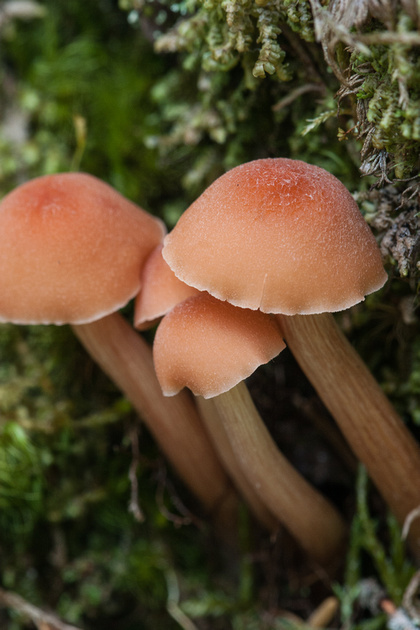 Mushrooms growing out of a tree stump, Prince William Sound Mushrooms growing out of a tree stump, Prince William Sound
|
| Season: Winter
Lighting: Open shade Focal length: 400 mm (telephoto) Aperture: f22 Exposure: 1/60 second |
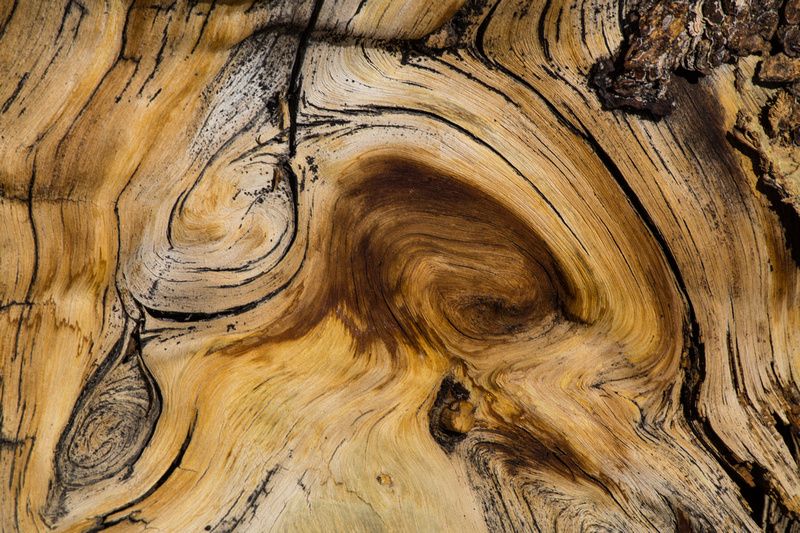 Tree trunk patterns, Ancient Bristlecone Pine Forest Tree trunk patterns, Ancient Bristlecone Pine Forest
|
| Season: Autumn
Lighting: Overcast Focal length: 180 mm (telephoto) Aperture: f3.5 Exposure: 1/8 second |
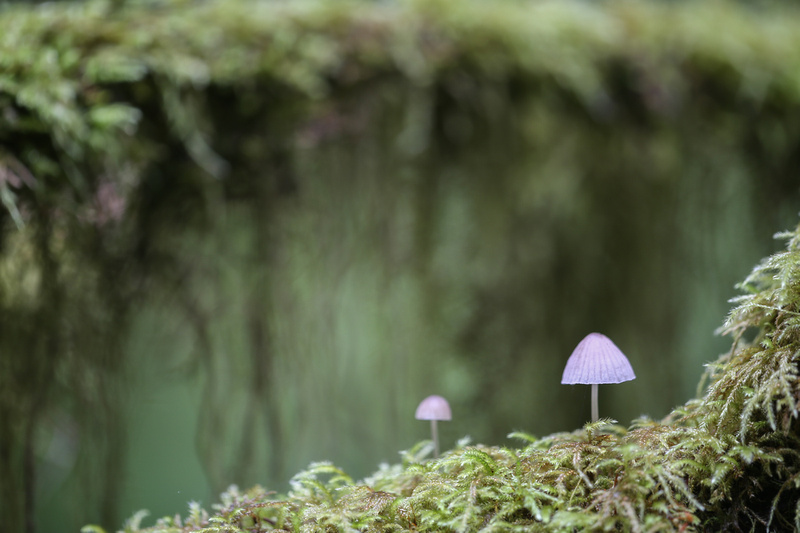 Tiny mushrooms on moss, Silver Falls State Park Tiny mushrooms on moss, Silver Falls State Park
|
|
Look up to find creative images and patterns. |
|
| Season: Spring
Lighting: Morning sun Focal length: 14 mm (wide angle) Aperture: f8 Exposure: 1/250 second |
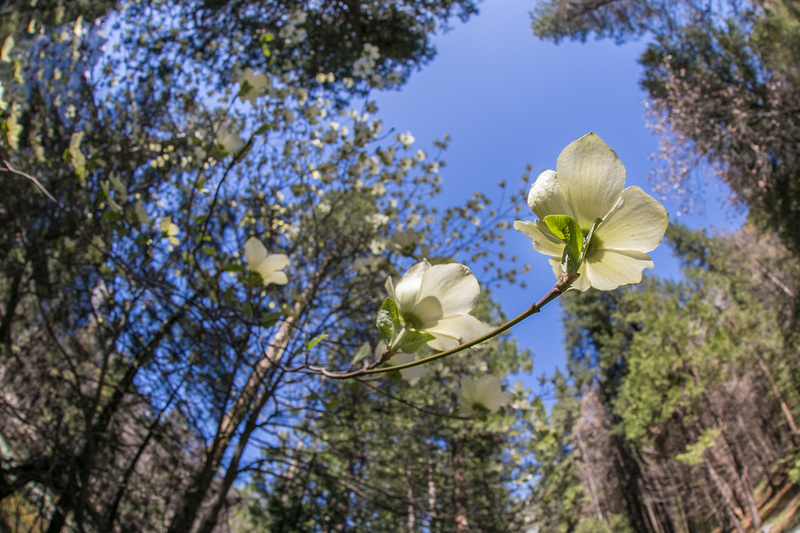 Looking up at dogwood blooms, Yosemite National Park Looking up at dogwood blooms, Yosemite National Park
|
|
Look down to capture interesting elements on the forest floor. |
|
| Season: Autumn
Lighting: Pre-sunrise Focal length: 180 mm (telephoto) Aperture: f8 Exposure: 1/30 second |
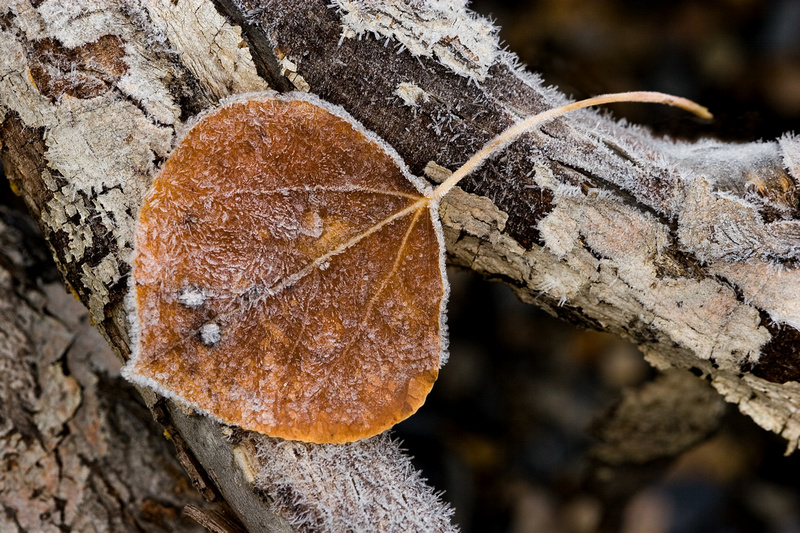 Looking down at a frost covered aspen leaf, Lundy Lake Looking down at a frost covered aspen leaf, Lundy Lake
|
| Season: Spring
Lighting: Open shade Focal length: 180 mm (telephoto) Aperture: f32 Exposure: 1 second |
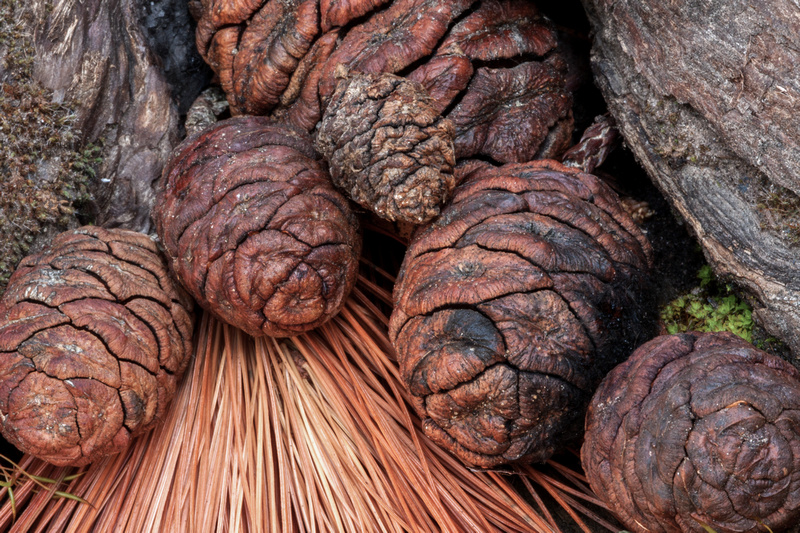 Looking down at pine cones and needles, Sequoia National Park Looking down at pine cones and needles, Sequoia National Park
|
I hope you enjoyed this how to guide for shooting in the forest. Stay tuned for more how to's on other types of shooting locations!
